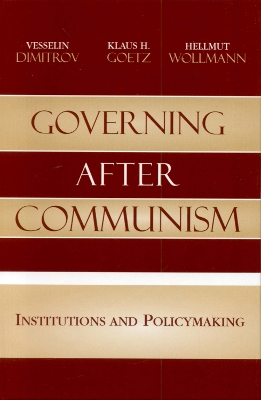This timely comparative analysis explores the evolution of governance in Central and Eastern Europe. The book considers post-communist leaders' key challenge: the development of central government institutions capable of coordinating, integrating, and steering the policymaking process. Building on a broad range of primary sources and extensive field research, the distinguished authors analyze the processes and outcomes of institution-building in Hungary, Poland, the Czech Republic, and Bulgaria since the late 1980s. They examine in detail the organization and inner workings of central executives; explain differences in executive trajectories across time and countries by considering the influence of institutional legacies, the impact of evolving party systems, and the role of crises in spurring institutional change; and show the effects of executive institutions on patterns of public policy, especially the budgetary process. Through a rigorous application of the core-executive framework, this study offers nuanced conceptual and analytical insights that will enhance understanding of both the evolving institutions of Central and Eastern Europe and the more stable West European systems. The in-depth analysis of the development of national executive institutions casts a distinctive new light on debates about EU enlargement, Europeanization, and patterns of governance.
- ISBN10 0742540081
- ISBN13 9780742540088
- Publish Date 4 May 2006 (first published 27 April 2006)
- Publish Status Active
- Publish Country US
- Publisher Rowman & Littlefield
- Imprint Rowman & Littlefield Publishers
- Format Hardcover
- Pages 312
- Language English
